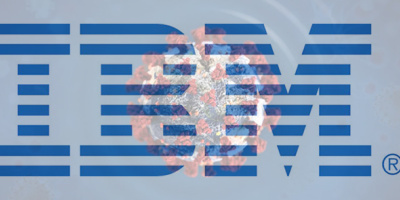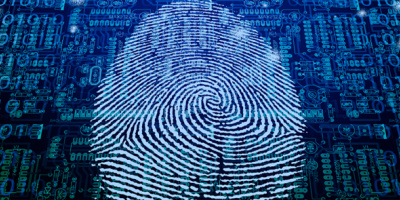I am going to cut right to the chase. Three years ago, I was diagnosed with a serious illness. It was treated, and I am now thankfully in remission. However, several times a year, I am beset with extraordinary anxiety and stress, which affects every aspect of my life because I have to wait, and wait, and wait—for days on end—for MRI and phlebotomy results.
Recent studies show that about 20–25 percent of physicians have implemented or are implementing electronic health records (EHRs). The Department of Health and Human Services (HHS) has mandated that all Americans will have a portable EHR by 2014. And companies such as Accenture, Northrop Grumman IT, Computer Sciences Corp., and IBM Corp. were the Big Four selected to develop solutions for the Nationwide Health Information Network (NHIN), which is being designed to consolidate our medical records and make them available on demand. Ah, but there's the rub. To whom will those records be made available? Obviously, to physicians. But what about to patients?
The HHS mandate is for portable records, which means the patients will be responsible for protecting, carrying, accessing, and presenting their medical records. But how the hell can we do this if we cannot wrestle our medical information away from physicians to its rightful owners—us? Many physicians make us wait docilely, if anxiously, for our test results like faithful dogs for their treats. What is even more maddening is that under the Health Insurance Portability and Accountability Act (HIPAA), which was enacted by the U.S. Congress in 1996, we as patients have a right to view our medical records. The problem is that many providers deny, and many patients don't exercise, that right.
I am an aggressive self-advocating patient, which means I call and call and call ad infinitum—and ad nauseam for the staff. When checking on my MRI results the other day, I was told that since the MRI was performed on a Friday, the radiologists wouldn't read the films until Monday. Well, isn't that interesting? The tech at the MRI center told me Friday that the radiologists were on duty on Saturday and would be reading the films. Then I was told that the hospital would not be faxing the report to the surgeon's office because the hospital systems were down. (I am assuming it was the PBX.) Down! How the hell can a hospital's systems be down? In private industry, that is called a "crit sit"—red alert and all hands on deck until the problem is resolved. I tried to call the hospital—about a million times—and discovered the phone lines to virtually all the departments were busy—interminably. How can an organization such as a hospital function in this manner? What about relatives and friends calling to speak to or ascertain information about loved ones, or physicians calling ahead because they are admitting a patient, or hospital administrators trying to obtain authorization from insurance companies for a patient to undergo a procedure? This is unconscionable.
Back in the day, physicians held onto to our medical records and adjuvant information like the Gollum held onto the one precious ring in the J. R. R. Tolkien legendarium. Patients' medical information and records resided entirely in the possession of the physicians, and the physicians could choose to share or not and could interpret findings for the patients, but they rarely let the patients see their own medical records—their medical currency—thereby ensuring that the physicians retained sovereign power, leaving the patients more or less disenfranchised. Imagine your financial institution not allowing you to see your financial records or your account balances and transactions—because maybe you are not smart enough to interpret them. Sheesh!
In an era of instantaneous gratification in which we can IM and be IMed to distraction, email and text message our brains out, surf the Web whenever, wherever, and for as long as we please as well as securely pay all our bills online, we can't get lab or other medical test results quickly over the Internet—either by email or through a patient portal—as soon as they are available.
Now, I understand that finding that you are overdrawn at the bank is technically not as disturbing and potentially as alarming (although some would dispute this) as discovering that there is an anomaly with an MRI or with phlebotomy results. However, if the test results are OK, why can't the physician either electronically sign off and send an email stating such and then call the patient—promptly—when test results indicate a need for a visit? Why all the cloak and dagger and smoke and mirrors?
There is a method behind this madness. It is inefficient and ineffective, but it is part of the medical paradigm, albeit one that is beginning to be repudiated, in which the physician is all powerful and the patient is subject to the whims of said physician. This is changing, and the old regime may soon be toppled, especially if HHS achieves its rather lofty goal of a portable EHR for each individual American. If we, the patients, are going to be responsible for our medical records, then we must have the inalienable right—to be strictly enforced—to see them without having to play dodge ball with the physician/gatekeeper.
But are we prepared as a nation to do this? The technology is certainly there, as is the security, but the socio-cultural paradigm has not yet shifted. Some medical providers have followed the lead of financial institutions, which use SiteKey security and other state-of-the art encryption. But for the most part, in the medical realm, we are still living in a primordial soup in which providers do not know how (or cannot afford) to efficiently use technology to ascertain the identity of patients and provide them access to their medical records and test results—or maybe those providers are afraid of litigation. To truly enable and empower patients to take ownership of their medical records will require more than just rote implementation of technology; it will require a paradigm shift (paradigms are always shifting, aren't they?), which will change the physician-patient relationship and force physicians to recognize that most patients, except for the cognitively or otherwise impaired, are capable of managing (or mismanaging as the case may be) their medical currency just as they do their finances and that it is not up to an organization such as the AMA or the government to restrict that access and ownership.
Maria A. DeGiglio is President of, and Principal Analyst for, Maria A. DeGiglio & Associates, an advisory firm that provides clients with accurate and actionable information on business and technology initiatives. You can reach Ms. DeGiglio at
Playing the Waiting Game
Typography
- Smaller Small Medium Big Bigger
- Default Helvetica Segoe Georgia Times
- Reading Mode






















 More than ever, there is a demand for IT to deliver innovation. Your IBM i has been an essential part of your business operations for years. However, your organization may struggle to maintain the current system and implement new projects. The thousands of customers we've worked with and surveyed state that expectations regarding the digital footprint and vision of the company are not aligned with the current IT environment.
More than ever, there is a demand for IT to deliver innovation. Your IBM i has been an essential part of your business operations for years. However, your organization may struggle to maintain the current system and implement new projects. The thousands of customers we've worked with and surveyed state that expectations regarding the digital footprint and vision of the company are not aligned with the current IT environment. TRY the one package that solves all your document design and printing challenges on all your platforms. Produce bar code labels, electronic forms, ad hoc reports, and RFID tags – without programming! MarkMagic is the only document design and print solution that combines report writing, WYSIWYG label and forms design, and conditional printing in one integrated product. Make sure your data survives when catastrophe hits. Request your trial now! Request Now.
TRY the one package that solves all your document design and printing challenges on all your platforms. Produce bar code labels, electronic forms, ad hoc reports, and RFID tags – without programming! MarkMagic is the only document design and print solution that combines report writing, WYSIWYG label and forms design, and conditional printing in one integrated product. Make sure your data survives when catastrophe hits. Request your trial now! Request Now. Forms of ransomware has been around for over 30 years, and with more and more organizations suffering attacks each year, it continues to endure. What has made ransomware such a durable threat and what is the best way to combat it? In order to prevent ransomware, organizations must first understand how it works.
Forms of ransomware has been around for over 30 years, and with more and more organizations suffering attacks each year, it continues to endure. What has made ransomware such a durable threat and what is the best way to combat it? In order to prevent ransomware, organizations must first understand how it works. Disaster protection is vital to every business. Yet, it often consists of patched together procedures that are prone to error. From automatic backups to data encryption to media management, Robot automates the routine (yet often complex) tasks of iSeries backup and recovery, saving you time and money and making the process safer and more reliable. Automate your backups with the Robot Backup and Recovery Solution. Key features include:
Disaster protection is vital to every business. Yet, it often consists of patched together procedures that are prone to error. From automatic backups to data encryption to media management, Robot automates the routine (yet often complex) tasks of iSeries backup and recovery, saving you time and money and making the process safer and more reliable. Automate your backups with the Robot Backup and Recovery Solution. Key features include: Business users want new applications now. Market and regulatory pressures require faster application updates and delivery into production. Your IBM i developers may be approaching retirement, and you see no sure way to fill their positions with experienced developers. In addition, you may be caught between maintaining your existing applications and the uncertainty of moving to something new.
Business users want new applications now. Market and regulatory pressures require faster application updates and delivery into production. Your IBM i developers may be approaching retirement, and you see no sure way to fill their positions with experienced developers. In addition, you may be caught between maintaining your existing applications and the uncertainty of moving to something new. IT managers hoping to find new IBM i talent are discovering that the pool of experienced RPG programmers and operators or administrators with intimate knowledge of the operating system and the applications that run on it is small. This begs the question: How will you manage the platform that supports such a big part of your business? This guide offers strategies and software suggestions to help you plan IT staffing and resources and smooth the transition after your AS/400 talent retires. Read on to learn:
IT managers hoping to find new IBM i talent are discovering that the pool of experienced RPG programmers and operators or administrators with intimate knowledge of the operating system and the applications that run on it is small. This begs the question: How will you manage the platform that supports such a big part of your business? This guide offers strategies and software suggestions to help you plan IT staffing and resources and smooth the transition after your AS/400 talent retires. Read on to learn:
LATEST COMMENTS
MC Press Online